Latest
UN relief chief outlines humanitarian priorities for Ukraine
Published
4 years agoon
By
Seun Owope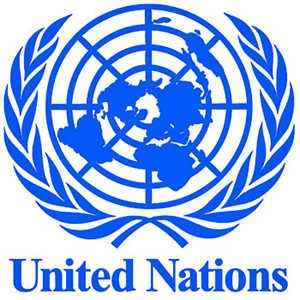
UN relief chief outlines humanitarian priorities for Ukraine.
The UN Emergency Relief Coordinator, Martin Griffiths, says allowing civilians to safely leave areas under fire in Ukraine, and delivering desperately needed aid to these locations, are among immediate priorities for humanitarians.
Griffiths, together with Catherine Russell, head of the UN Children’s Fund (UNICEF), briefed the Security Council on Monday on how the UN and partners were responding to rising needs since the Russian offensive began 11 days ago.
“People are watching as this unnecessary conflict engulfs cities and civilians.
“As well as what’s happening in Ukraine, they have an extra sense of dread over the impact this will have on the wider world. I include myself in this category,” he said.
Griffiths, who is also the UN Humanitarian Coordinator, outlined three immediate priorities “to lessen the pain and suffering we are all watching unfold in real time.”
First, he said the parties must take constant care to ensure military operations spared civilians, homes and other infrastructure.
Furthermore, he said people wanting to leave areas of active hostilities must be allowed to do so safely and voluntarily.
As civilians in Mariupol, Kharkiv and elsewhere under attack, desperately need aid, especially life-saving medical supplies, he said safe passage for humanitarian supplies was also required.
His third point highlighted the urgent need for a system of constant communication with the parties to support aid delivery.
He explained that humanitarian notification systems had been implemented in other situations.
“I have already conveyed these three points to the authorities of Ukraine and to the Russian Federation,” Griffiths said.
A team from his office has been sent to Moscow to work on better humanitarian civil-military coordination, which follows a phone call on Friday between UN Secretary-General, António Guterres, and the country’s Defense Minister, Sergei Shoigu.
The UN and partners were already in Ukraine prior to the escalation, supporting some 1.5 million people in the Donbas region affected by eight years of fighting between government forces and pro-Russian separatists.
In the weeks before the Russian onslaught, they had already started preparing for the worse.
Griffiths said, “as the unthinkable became the reality,” they launched a scalable and agile humanitarian operation that could adapt to the changing situation.
Over the past 11 days, humanitarians have fed hundreds of civilians, with the World Food Programme (WFP) setting up supply chain operations to deliver immediate food and cash assistance to up to five million people inside Ukraine.
UN health agency WHO has shipped trauma care, emergency surgery equipment and other supplies, with more on the way.
The conflict has so far forced more than 1.7 million people to flee to neighbouring countries, particularly Poland, and the UN refugee agency, UNHCR, is providing support for them.
Other UN initiatives have included the appointment of a Crisis Coordinator for Ukraine, and the launch last week of two humanitarian plans to support people in the country and those who have crossed the borders.
Humanitarian assistance has continued in areas where security permits, Griffiths told the Council.
“Under the leadership of the Crisis Coordinator, and the Resident and Humanitarian Coordinator in country, we have new plans now, of course, on how to deliver where humanitarian needs are most acute.
“This includes the cities we have seen so much on these last days such as Mariupol, Kharkiv, and Kherson. Our response is being scaled up from hubs in Vinnutsya, Uzhorod and Lviv,” he said.
Also, Russell from UNICEF reported that the past eight years of conflict had already inflicted profound and lasting harm on the 7.5 million children in Ukraine, and threats have only grown with the current crisis.
Since the fighting began, at least 27 boys and girls have been killed, and 42 have been injured.
UNICEF expects child casualty numbers, as well as displacement, to increase. Half of the refugees are children.
Meanwhile, homes, schools, orphanages, and hospitals have all come under attack, while water and sanitation facilities, and other civilian infrastructure, have been hit, affecting millions.
“What is happening to children in Ukraine is a moral outrage.
“Images of a mother and her two children and a friend lying dead on the street – hit by a mortar as they tried to flee to safety – must shock the conscience of the world.
“We must act to protect children from this brutality,” Russell said, delivering her first Council briefing since he was appointed in December 2021.
Russell was recently at the Ukraine-Romania border, where she met children and mothers.
“The children talked about being suddenly pulled out of school, losing beloved toys, and the terrifying sound of shelling and gunfire. So many children have been deeply traumatised,” she reported.
Currently, UNICEF has 135 staff in Ukraine, with more being deployed. Teams supported by the agency are reaching children wherever they can, providing psychosocial care, mental health support, and protection services.
Other actions include establishing ‘Blue Dot’ hubs at border crossings in countries hosting Ukrainian refugees.
The hubs are a safe space for children and families, providing services such as psychosocial support, basic legal counselling and places to play.
The agency and UNHCR have also called for greater protection for unaccompanied and separated children crossing borders, and for some 100,000 children in Ukraine living in care institutions or boarding schools, half of whom have disabilities.
“While UNICEF will continue doing everything to support Ukraine’s children, the brutality must end.
“Children in Ukraine need help and protection. They need supplies and other critical support. They need access to basic social services like health and education.
“They need hope for the future. But above all children in Ukraine need peace. It is the only sustainable solution,” Russell said.
You may like
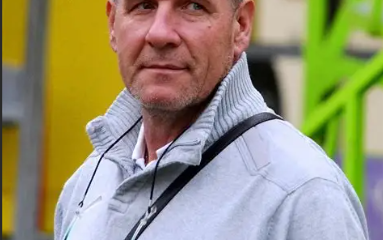

Journalist’s freedom reveals horrors of Russian captivity
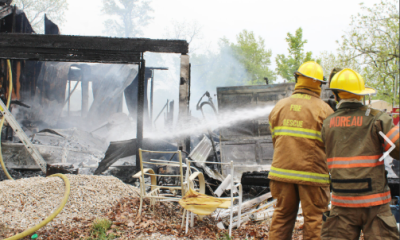

Russia unleashes massive bombardment, undermining diplomatic push for peace
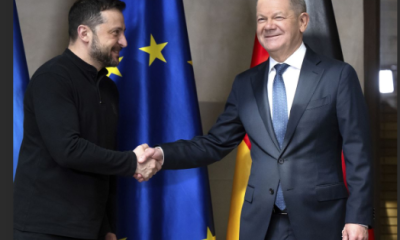

Trump, Putin, and a tense truce
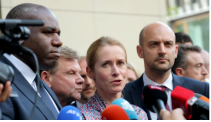

E3 Ultimatum: Iran faces sanctions if nuclear talks fail
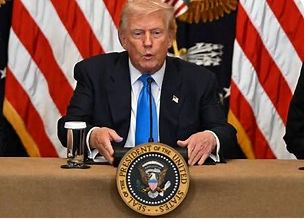

Trump’s promise of peace fails as Russia’s assault on Ukraine reaches new heights
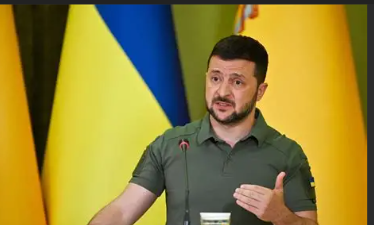

Zelensky’s anti-corruption bill sparks outcry, threatens Ukraine’s EU path
Trending

 Health5 days ago
Health5 days agoDeclassified CIA memo explored concealing mind-control drugs in vaccines

 Entertainment1 week ago
Entertainment1 week agoSimi addresses resurfaced 2012 tweets amid online backlash

 Crime6 days ago
Crime6 days agoSenior police officers faces retirement after Disu’s appointment as acting IGP

 Education1 week ago
Education1 week agoPeter Obi urges JAMB to address registration challenges ahead of exams

 Health1 week ago
Health1 week agoNAFDAC issues alert on suspected revalidated SMA Gold infant formula

 Comments and Issues7 days ago
Comments and Issues7 days ago20 Critical Fixes to Save Nigeria’s Democracy from Electoral Fraud

 Football7 days ago
Football7 days agoMartínez ruled out of Everton clash with calf injury

 Latest6 days ago
Latest6 days agoICPC yet to respond to El-Rufai’s bail request as arraignment date looms

